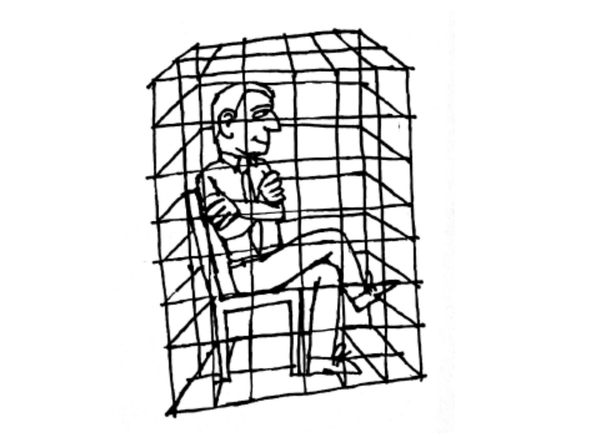Capitalism and Its Critics. A History: From the Industrial Revolution to AI
By John Cassidy
Farrar, Straus and Giroux, 624 pages, $19.99
The comedian Louis C.K. has an unforgettable bit mocking people who whine about the inconveniences of modern life, especially air travel. “People come back from flights and they tell you a horror story… They’re like: ‘It was the worst day of my life. First of all, we didn’t board for twenty minutes, and then we get on the plane and they made us sit there on the runway.’” Glitchy wifi has come to seem like an infringement of one’s basic rights, but our comedian will have none of it. “What happened next? Did you fly through the air? Incredibly—like a bird? Did you partake in the miracle of human flight? You non-contributing zero? You are flying!”
The moral of the story: “Everything is amazing and nobody’s happy.” It is a less sophisticated version, perhaps, of Max Weber’s famous image of the “iron cage.” Writing in 1904, Weber saw that modern capitalism, its inexorable logic of efficiency and rationality, had reshaped Western society. Yet it felt like a trap. The modern economic order, he wrote, “is now bound to the technical and economic conditions of machine production which to-day determine the lives of all the individuals who are born into this mechanism, not only those directly concerned with economic acquisition, with irresistible force. Perhaps it will so determine them until the last ton of fossilized coal is burnt.”
John Cassidy’s Capitalism and Its Critics invites reflection on the long-term successes and failures of this modern economic order. The book’s goal is to “tell the history of capitalism through the eyes of its critics.” It is compendious (over 600 pages) yet riveting. Starting in the 18th century with opponents of the East India Company, and then the Scottish thinker Adam Smith, Cassidy traverses more than two centuries, concluding with the French economist Thomas Piketty. Each chapter sketches the ideas of a different critic. Glued together with up-to-date scholarship from economic history, framed in terms of changes in technology and productivity, the result is a panoramic reflection on this elusive “ism” that surrounds us and for better and worse determines our lives.
